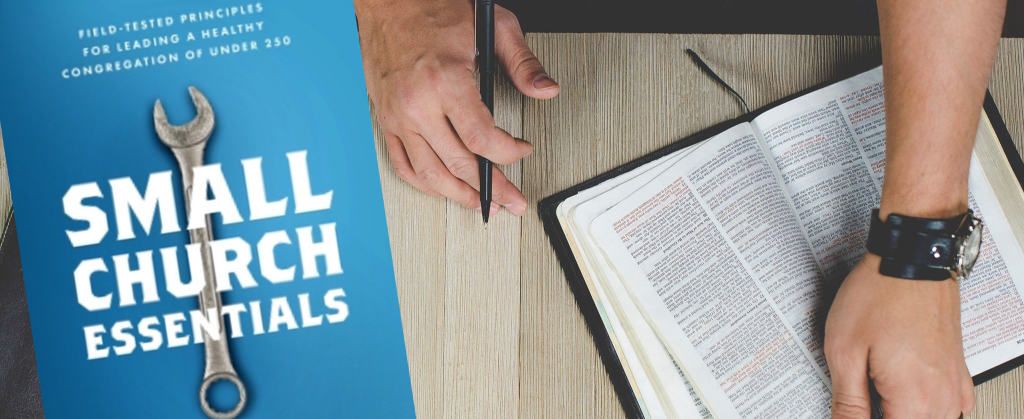Small Church Essentials

Most pastors serve in a small church. Even big-church pastors will probably serve in a small church at some point in their ministries. And yet small churches — and by extension, small church pastors — are often seen as unhealthy and insignificant.
Karl Vaters, author of Small Church Essentials: Field-tested Principles for Leading a Healthy Congregation of Under 250, wants to change that.
Small Church Essentials accomplishes three things.
First, it normalizes small churches. “Just because a church is small does not mean that it is broken, lazy, visionless, ingrown, poorly led, or theologically faulty,” he writes. The issue is not size but health. The majority of churches are under 200, and it’s about time we stopped shaming them. God uses all kinds of churches, including small ones. Small does not equal broken.
Second, it helps us recognize how small churches are different. When we try to apply big-church principles to small churches, we fail and wonder why. Vaters helps us understand how small churches are different so that we can respond appropriately. One example: big churches need to prioritize vision, process, and programs. Small churches need to prioritize relationships, culture, and history.
Third, Vaters provides essential practices that won’t work in a big church, but that are essential to lead a small church to health. He helps us diagnose its health, tackle chronic small church issues, evaluate and change ministries, and cast vision. One of my favorite tools I’m taking from his book is the 3-2-1 Planning System: taking three uninterrupted hours every week to plan, pray and write about events that are three months, two months, and one month out. Vaters understands life in a small church and what we need to lead well.
I love his admonishment to bloggers, authors, and speakers who imply that the church should grow by following a list of simple steps. “If you’re compiling lists or writing blog posts like this, let me address you for a moment as a fellow minister and a member of your target audience. Those lists hurt more good pastors and churches than they help.” Later he writes, “How can we move forward when much of our church growth talk leaves many churches feeling like failures?… We need to stop treating the majority of churches like they’re the foot in Paul’s body analogy, hearing the hand say, ‘I don’t need you!’”
I also love his explanation of all the factors that must be present for a church to grow large. Growing a big congregation isn’t a biblical mandate, nor is it common or inevitable. The ingredients for a healthy church are few; the ingredients for a big church are many, complicated, and often out of reach.
Vaters doesn’t glorify small churches, nor does he demonize large ones. He simply wants us to recognize the importance of small church ministry and get to work. Let’s not worry about turning them into large churches. Let’s work at loving them and helping them become the healthiest and most effective small churches possible.
“Your church is big enough. Right now. Today, at its current size,” he writes. “You can start doing right now what Jesus is calling your church to do right now. Your church is big enough, because God is big enough. It all starts here.”
It’s a good book on an important topic. If you’re a small-church pastor, read this book and rejoice in the church that you get to lead and love. You’ll find this book both encouraging and helpful.
More from Amazon.com






